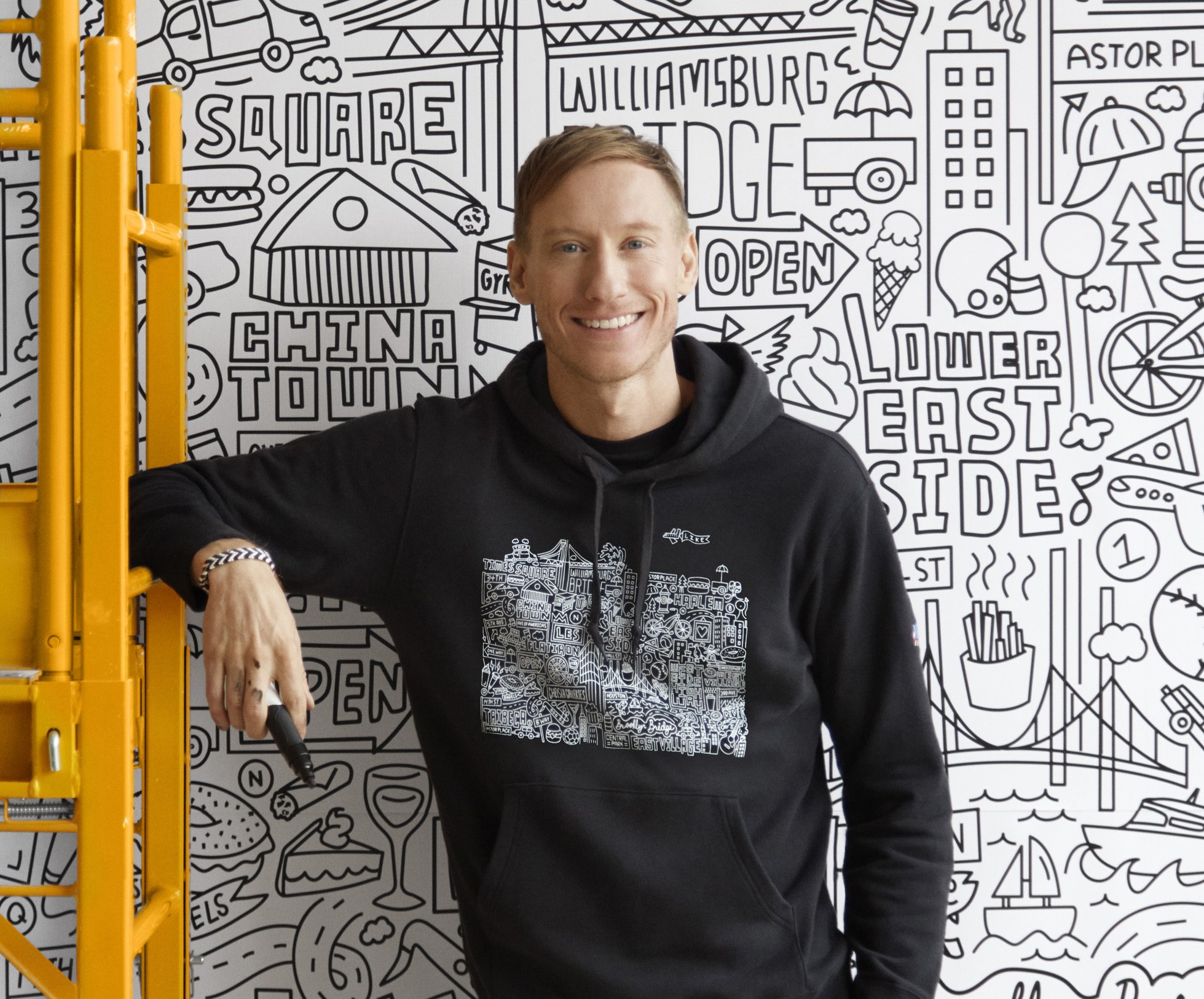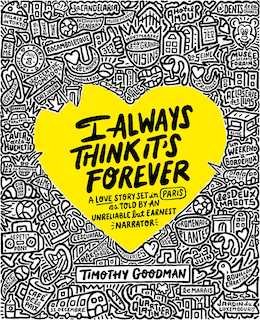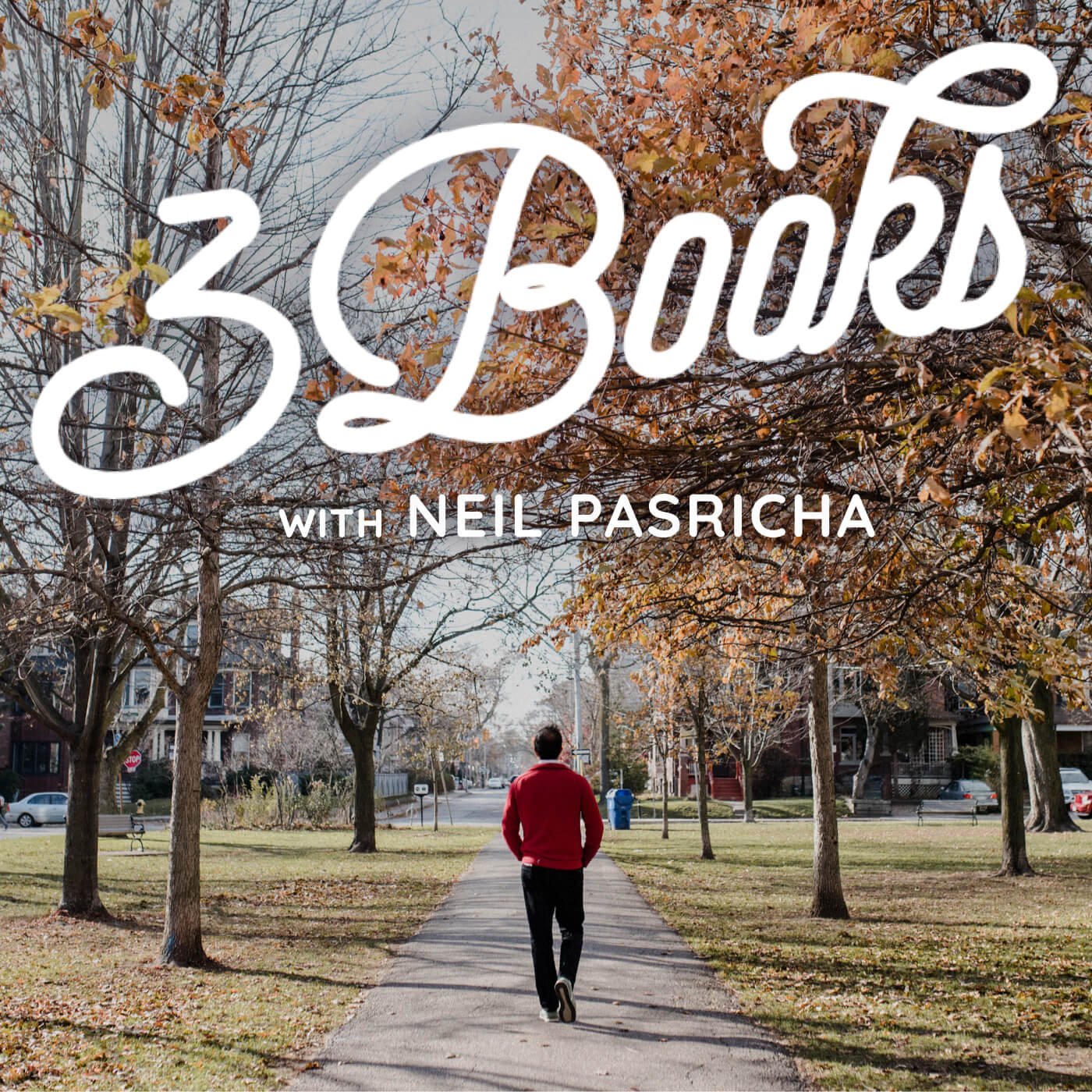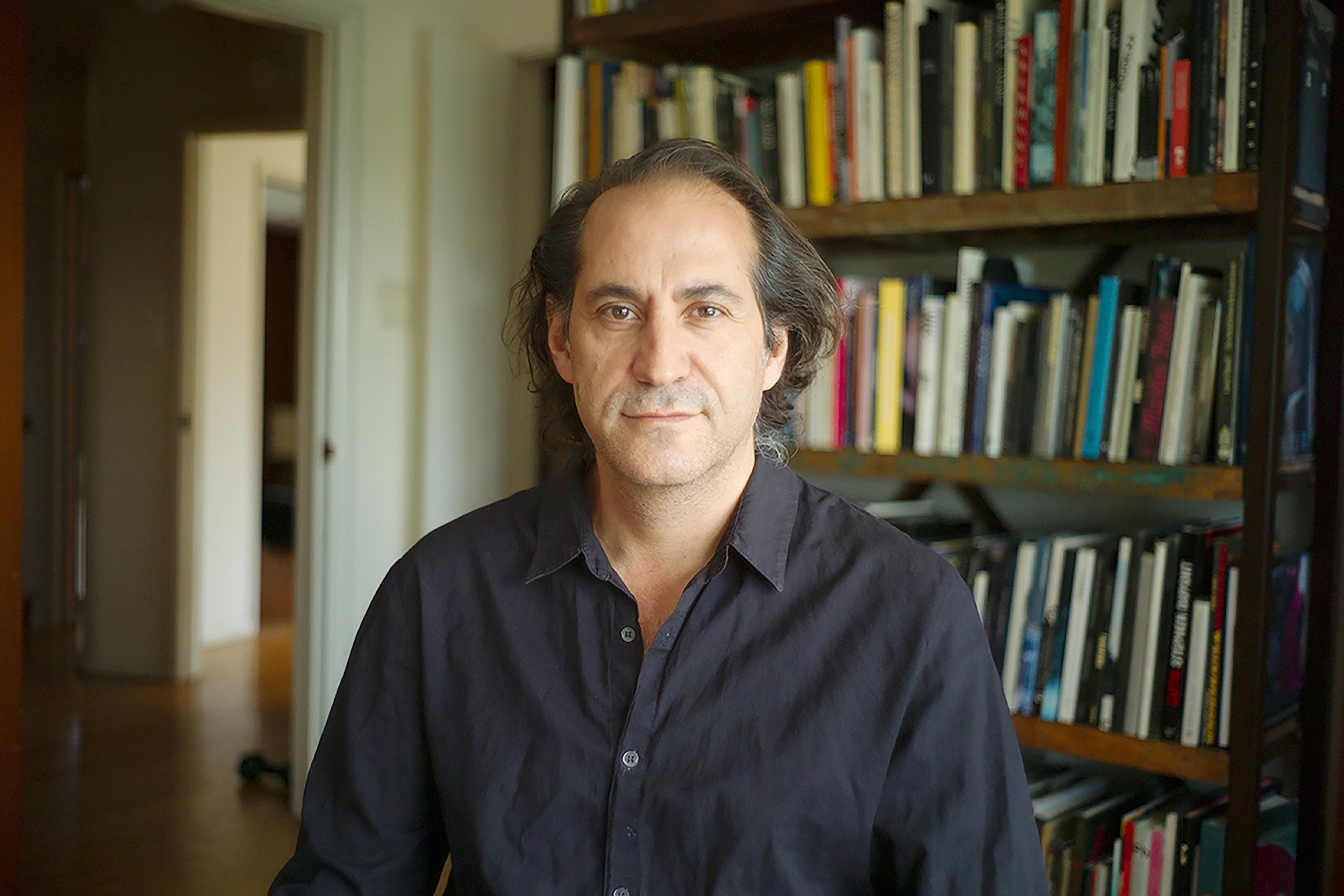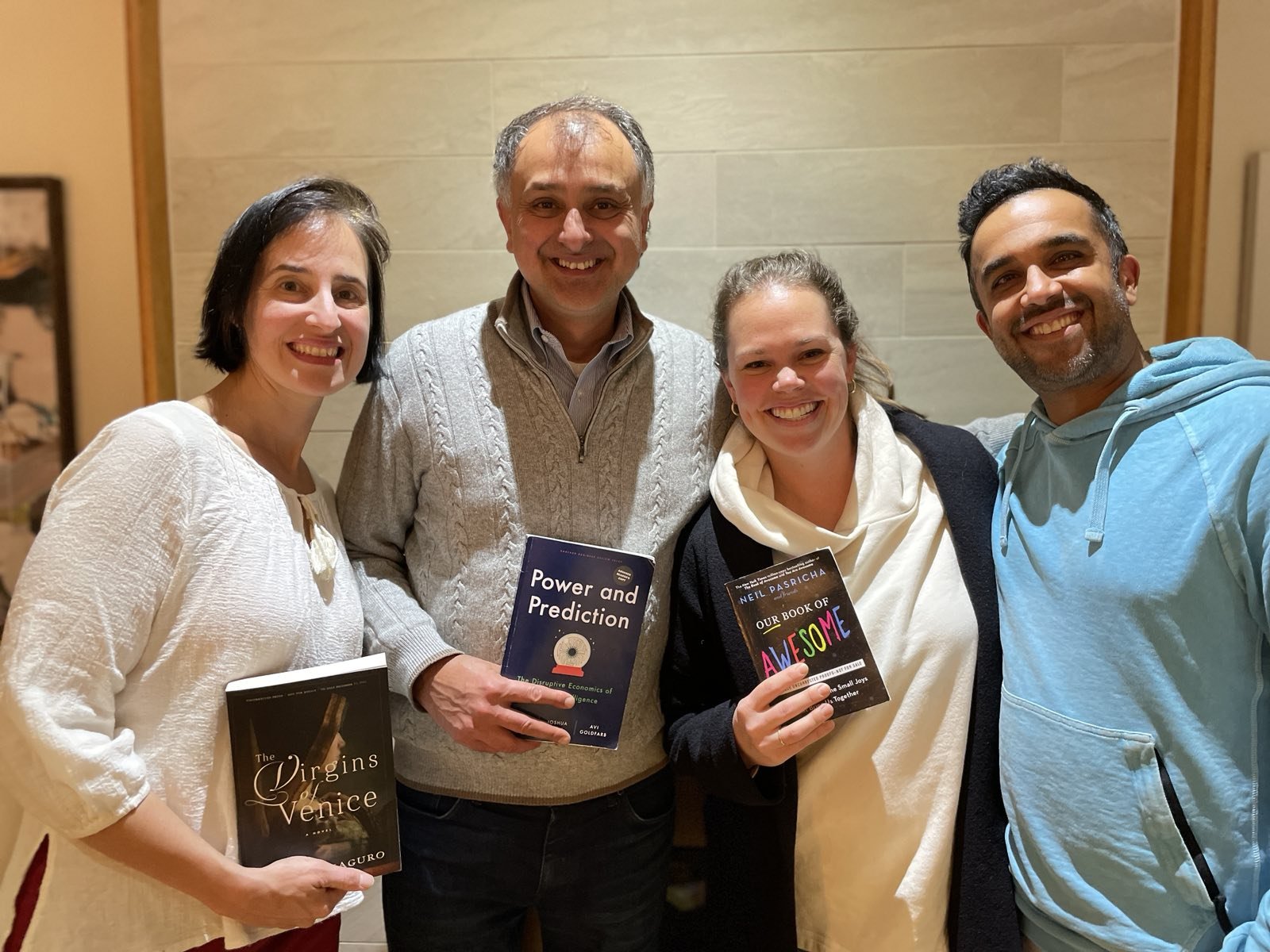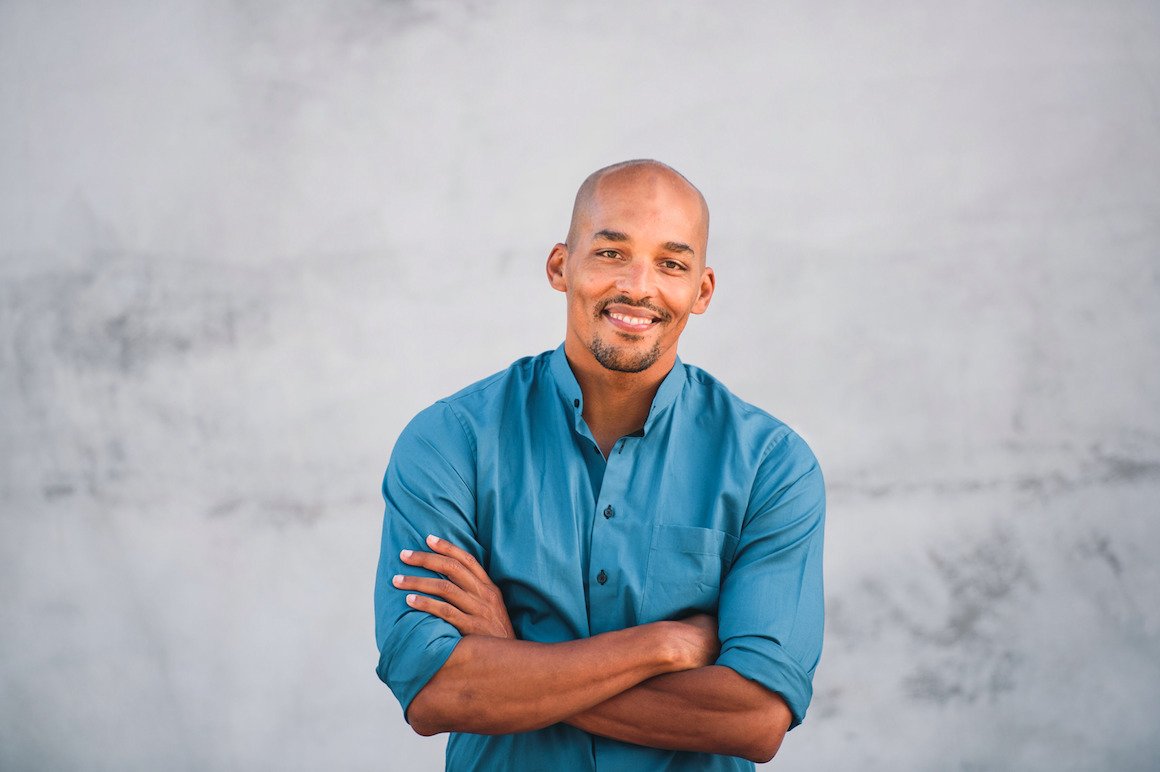Happy Snow Moon, everybody!
I've been thinking a lot again about what makes life important.
I'm convinced it's just not social media. News media. The endless firehose of negativity being blasted at our brains out there. No. It's not that. It's the curtains we pull around ourselves and our loved ones to create and hold space to be our truest selves.
We’ve only got 30,000 days here and they are always, always, always fleeting. So let's make sure on 3 Books we create and hold space to talk about and celebrate what makes life sweet. Let's always plumb into the depths of inspiring and stimulating characters and people who share their wisdom with us and feel like good company on our path.
To mark the Snow Moon we are going to be sharing company today with Timothy Goodman, one of the most open hearted, vulnerable, and artistic souls I think we've ever had on the show. How can I introduce you to him? Well, if you have this month’s issue of Time magazine Timothy drew the cover! If you live in New York City and saw a garbage truck drive by covered in doodles, that’s Timothy Goodman! If you hang out in trendy NYC hotels, Timothy Goodman has done art in the lobbies! He’s created art for the likes of Nike, Apple, Google, MOMA, Netflix, Tiffany, Samsung, Target, The New Yorker and The New York Times.
Timothy Goodman is the author of Sharpie Art Worksop and the co-creator of several social experiments including the viral blog and book, 40 Days of Dating. His first solo gallery exhibition, I’m Too Young To Not Set My Life on Fire was on view in Manhattan last year. And he just designed shoes for Kevin Durant -- the KD15! -- even though he’s a Knicks fan, as you'll hear.
Timothy has a brand new graphic memoir out called I Always Think It's Forever which talks about the year he spent travelling and falling in love. He has a wonderful way of writing -- like hiphop lyrics -- with endlessly stimulating braids of rhyme and design.
We are going to talk about: couples therapy, navigating stress, staying artistically fresh, prioritizing creativity, what it means to be a recovering misogynist, how to question our tropes about gender, mourning past versions of yourself, and of course, the incredible Timothy Goodman’s 3 most formative books.
Let’s flip the page into Chapter 120 now…
Chapter 120: Timothy Goodman on popping privilege paradigms and paving personal paths
What You'll Learn:
What is the 40 days of dating project?
How should we question our stereotypical tropes about gender?
When should a couple think about couples therapy?
What does it mean to be an expressionist?
How can artists stay fresh?
How can you maintain balance in life?
How do you prioritize creativity & values?
What does it mean to mourn yourself?
How should we take in social media?
What is an artist’s responsibility?
What does it mean to sell out?
What is an artist?
Notable quotes from Timothy:
“In some ways I call myself a recovering misogynist.” Timothy Goodman #3bookspodcast
“Your partner has direct access to your wounds.” Timothy Goodman #3bookspodcast
“Can you find yourself in a state of becoming?” Timothy Goodman #3bookspodcast
CONNECT WITH timothy
word of the chapter:
Timothy’s 3 books
Timothy’s first book (15:19)
Timothy’s second book (30:12)
Timothy’s third book (52:28)


